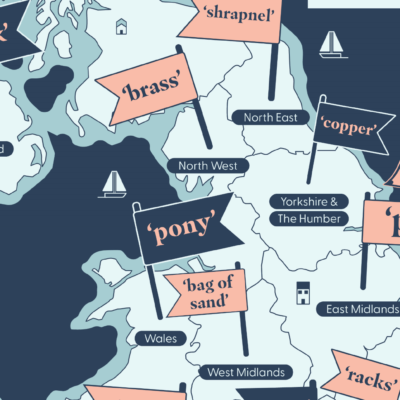The £30 broadband rule explained – and how you can get a cheaper deal (even with your existing provider)
If you’re paying more than £30 a month for broadband, you’re paying too much.
Which? has released data looking at full fibre deals with a download speed of at least 70Mbps, the UK average.
It found many deals that came in at less than £30 even with upfront costs, promotional discounts and future mid-contract increases factored in.
The not-for-profit consumer champion says more than a third of broadband customers are out of contract – meaning they’re likely to be paying an expensive standard tariff and getting hit with a hefty price rise each year.
We wanted to look beyond the press release to get some practical tips for Money blog readers, so sat down with Which? head of home products and services Natalie Hitchins…
Hi Natalie, firstly, why do most broadband customers find themselves paying more than £30…
Out-of-contract customers often pay more than those in a contract. For customers who don’t haggle, prices will continue to rise based on annual hikes and by how much providers decide to increase prices at the end of a contract. They’ll also miss out on low introductory offers from rivals that are looking to entice new customers.
How much could most of these customers save?
Our research shows that out-of-contract TV and broadband customers could save an average of £160 a year by switching and £117 by haggling. So it’s well worth doing your research on the best deals on the market and switching to a new provider, or haggling with your current supplier if you’re happy with the service.
Okay, you’re an expert in this – what’s the best way to haggle?
Haggling can sound daunting, but it’s expected and invited by most of the big broadband providers. These days, it doesn’t have to include a long phone call either – most providers will allow you to do it via live chat.
Do your research on the deals available and use this information to negotiate with your provider. If you want a faster speed, a better router or additional services such as pay TV, then simply ask your provider what they can do for you.
You can use a switching service, like Which? Compare, to check the deals available in your area and compare them to your contract.
Haggling is particularly important if you don’t have multiple providers to choose from in your area. If you’re in that boat, it’s essential to stay on top of your contract and renegotiate regularly.
Contracts can be long and many people don’t have time to read every word – what are the key things to look out for?
Check for any mid-contract price hikes that mean your bills could increase annually. These price rises are used by many of the biggest firms, including BT, EE, TalkTalk and Virgin Media.
Many of the smaller firms don’t bake these price hikes into their contracts, so there are plenty of options available to avoid future increases. Essentially, calculate the full cost of a contract in advance so you can more easily compare providers.
Make a note of when your contract ends so you can remember to haggle or switch when it comes to an end.
Some experts say bundling is a good way to save – what’s your view?
It really depends on whether you will use everything included in the bundle. For example, some providers include TV bundles – such as Sky Sports. It’s important to weigh up how much you will use this and whether the extra cost is worth it for you.
Should you be trying to get incentives?
It’s become increasingly common for broadband providers to offer a little sweetener to entice new customers, so look out for incentives when you switch providers. They typically include vouchers and reward cards, but sometimes hardware is on offer too – we’ve spotted things such as wireless speakers, tablets or even televisions. However, since many of these are factored into a higher monthly cost, always compare the price you’re paying carefully with what you can get elsewhere.
There’s usually a process to apply for these incentives, so if you’re offered any incentive with a new deal, take note of what’s necessary to claim it when you sign up and set a reminder so you don’t forget before you run out of time.
Is it right that people in certain parts of the country could have access to cheaper deals?
Our analysis focused on services using the Openreach and Virgin Media networks, as these are widely available throughout the UK.
However, even cheaper deals will be available to those in certain parts of the country – if you live in parts of London or Hull, for example, deals offered by Community Fibre and KCOM are often even more attractively priced than those offered by the major providers.
Because alternative networks are continually rolling out services in different parts of the country, you may be lucky enough to have access to one such as those offered by Hyperoptic or CityFibre (used to provide Sky, TalkTalk, Vodafone and Zen Internet in certain areas), or smaller localised providers.
Find out more using our guide to regional broadband providers.





